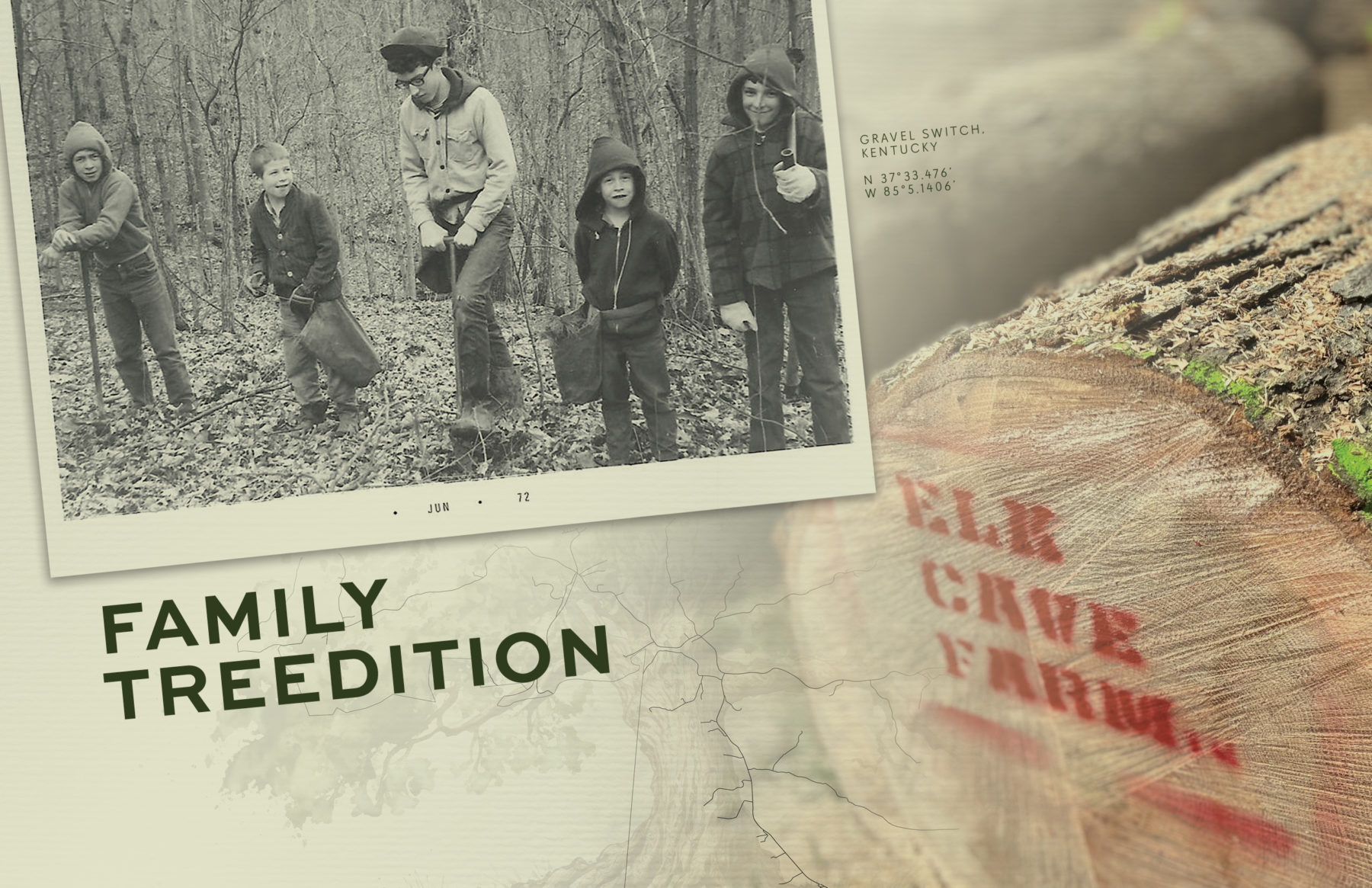
Near the tiny unincorporated area of Gravel Switch, Kentucky, sits a 1,300-acre collection of forest land called the Elk Cave Farm. And there’s something special about the trees in those forests.
These highly productive hardwood forests have deep, deep roots that go back six generations for the family of Steve Taylor, former interim dean of the Samuel Ginn College of Engineering who has now assumed the role of Auburn’s senior vice president for research and economic development.
In 1959, Steve’s parents, Clifton and Barbara Taylor, began piecing together parcels of land that some of their ancestors had farmed for nearly 100 years. Clifton and Barbara viewed this as an investment for their family’s future. It only made sense.
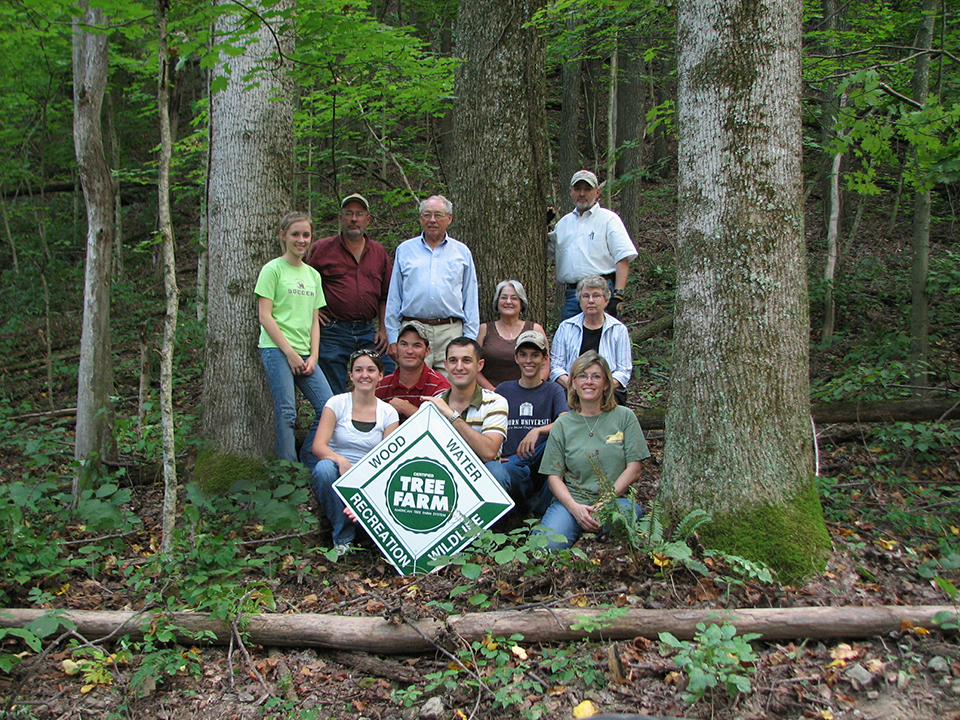
Both Clifton and Barbara’s professional careers were dedicated to educating agricultural and forestry producers and families through various positions in the cooperative extension systems at the University of Kentucky and the University of Florida.
Clifton was recognized as Kentucky’s Tree Farmer of the Year in 2017, and then went on to be recognized as one of four regional winners at the national level in 2022 as Regional Tree Farmers of the Year.
It was no surprise to Clifton and Barbara, then, when their son, Steve, decided to pursue a career in research, teaching and outreach that was focused on engineering applied to the forest products industry.
The acorn doesn’t fall far from the tree.
“There is a quote that several of our Auburn Engineering family know, and I have come to understand how it connects to my family, as well as connecting to so many in our dedicated alumni and friends,” said Steve. “It says, ‘The true meaning of life is to plant trees, under whose shade you do not expect to sit.’ My brother, Scott, and I grew up in a family that planted trees. We knew that not many other kids got to plant trees in their spare time during those chilly winter months in Kentucky, but I’m confident that we didn’t really appreciate how blessed we were.”
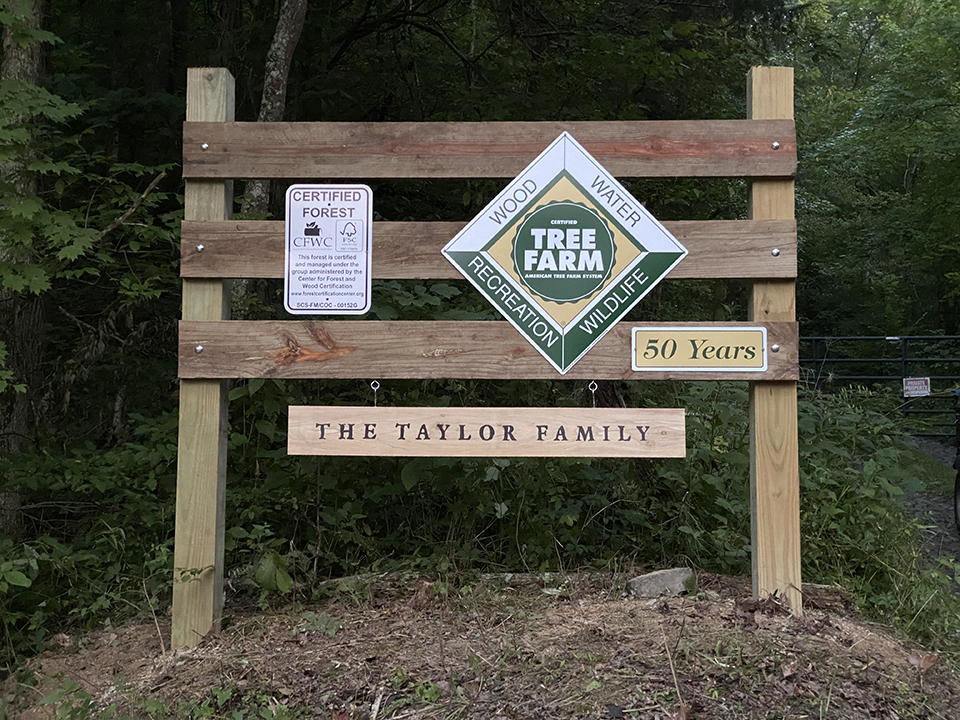
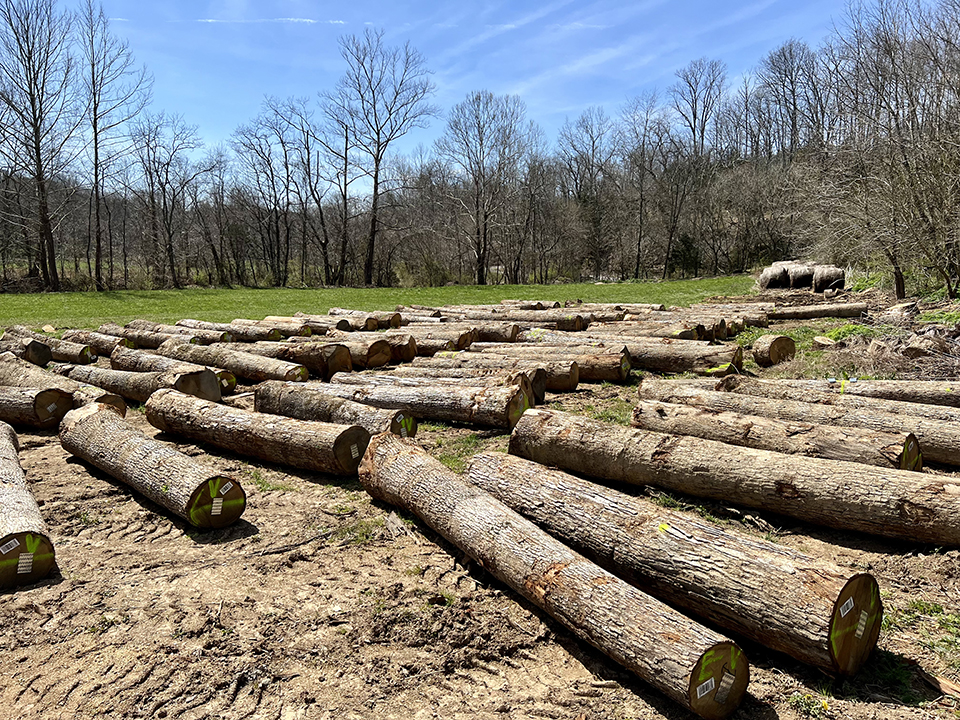
From their earliest days, the Taylor boys were privileged to watch their father and mother work hard to leave a legacy for them, even though they didn’t fully understand what their parents already knew — they would not get to see the full fruits of their labor.
For more than 50 years, their farm was certified as part of the American Tree Farm System (ATFS), with an accompanying Programme for the Endorsement of Forest Certification (PEFC) stamp of approval.
“It recognizes that a landowner is doing things the right way, that they’re managing their forests properly, not just for sustainable timber production but for wildlife, water quality and recreational uses, as well,” Steve said. “It also was a validation of the hard work my mom and dad put in.”
About 10 years ago, Elk Cave Farm became one of the first privately owned tree farms in the state of Kentucky to be certified by the Forest Stewardship Council (FSC). This global standard also ensures that products come from responsibly managed forests that provide environmental, social and economic benefits.
A “Spirit” That is Not Afraid
Not long after the Taylors received the FSC certification, Clifton received a call unlike any other he had received.
Irish Distillers, which is one of Ireland’s producers of some of the world’s most well-known and successful Irish whiskeys, including Jamesons, Middleton’s and Redbreast, had adopted a new commitment to sustainability across all of its business operations. With the U.S. bourbon industry booming in recent years, many producers have been concerned with the sustainability and long-term supply of white oak timber that is used to produce the barrels or casks that are a critical element in the maturation of the spirits. Some visionary leaders with Irish Distillers decided that they needed to find certified sustainable sources of white oak in the U.S. that could help them meet their corporate sustainability goals.
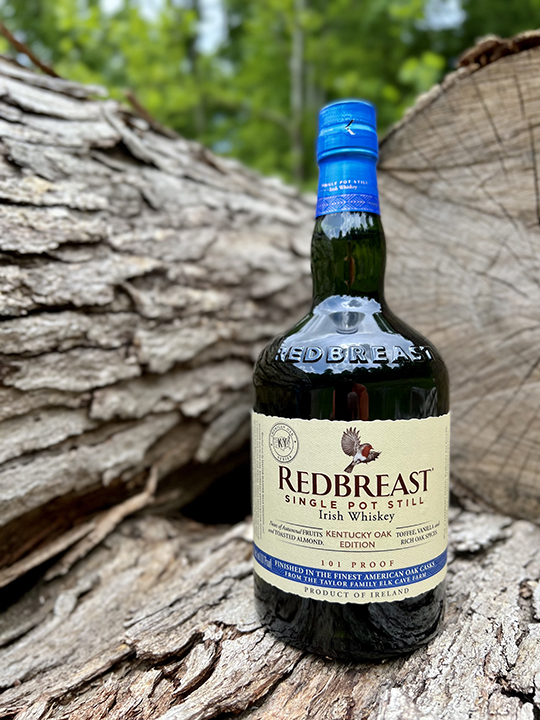
After researching U.S. farms that were FSC and PEFC certified, a representative from the company reached out to the University of Kentucky and was quickly directed to what could be the solution to the problem.
The Taylors, through many years of working with their consulting forester and collaborators at the University of Kentucky, had been experiencing success in regenerating white oak forests.
“Our friends at Irish Distillers quickly saw our family connection to the land, that this is not just some company that’s going out and cutting timber,” Steve said. “We are a family that’s in this for the long haul, a multigenerational operation, and I know they understood our commitment to sustainability.”
Planting Trees
In 2022, Redbreast Kentucky Oak Edition was released to the American market during a product launch event in New York City attended by industry writers, social media influencers and more. The whiskey is described as “triple distilled in copper pot stills and matured in American Bourbon barrels and Spanish Oloroso Sherry butts, then finished for a minimum of four months in hand selected, air-dried American Oak from the Taylor family Elk Cave Farm in Kentucky. The sweet notes of vanilla and elevated wood spice give you an unmistakable taste of Southern hospitality.”
Much like his father, Steve knows that some of the trees cut from their family farm today will contain spirits that won’t be consumed until well after he is long gone.
Much like his father, he is planting trees.
“In the last few years, our family has been able to experience some very exciting things in the regeneration of white oak — thanks in large part to our forestry professional friends, but also founded on a commitment from our dad and mom,” Steve said. “That commitment to forest management and finding ways to regenerate white oak truly epitomizes that famous quote. These oak regeneration activities may take anywhere from 70 to 100 years to come to fruition, so beyond my mom and dad, even my brother and I and possibly our children will not get to see the final fruits of our labor.
“My dad knew that it was his mission to plant those trees so that others — hopefully his children, grandchildren and great-grandchildren — would see those mature trees and literally sit in their shade someday and know that our family did that for us,” he added.
The Auburn Engineering Family Connection
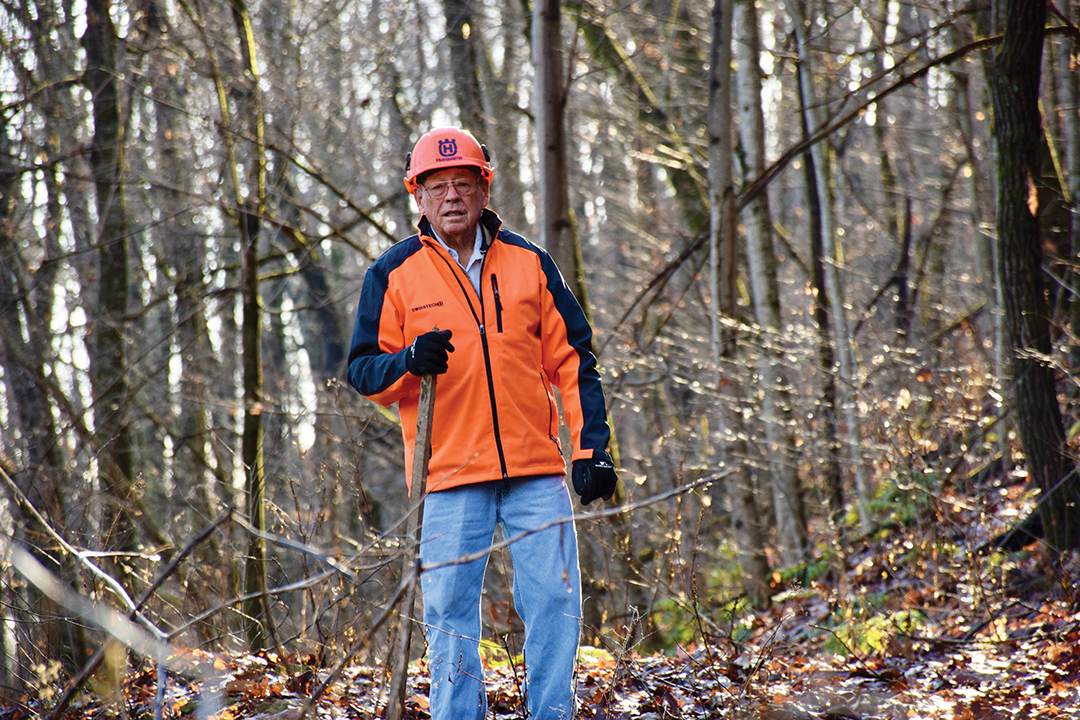
For Steve, planting trees means even more when he thinks about his experiences in the Ginn College of Engineering.
“I have heard that this quote has been used by one of our noteworthy engineering benefactors, Rosemary Brown, when she talks about the importance of philanthropy in the success of our college,” Steve said. “I have been blessed in my roles as department head, associate dean and, most recently, as interim dean to see how our donors are making choices to fund scholarships, professorships, funds for excellence and state-of-the-art facilities such as the Brown-Kopel Engineering Student Achievement Center. I realize, that in many cases, our donors won’t be able to see the full realization of their investment since it may occur many years in the future. I hope that they can see what I see — their gifts of time, talent and treasure are noble, and they will have meaning to so many Auburn Engineering students, staff and faculty into the future.”
These gifts will allow countless generations of the Auburn Engineering family to sit in that glorious shade under a tree that was planted many years ago.